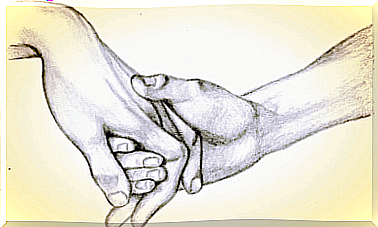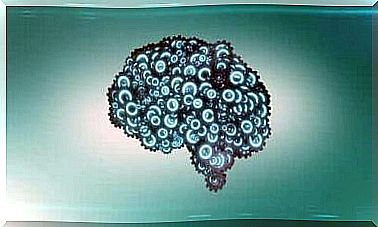Are Narcissists Born That Way Or Become That Way?

Are narcissists born that way or become that way? This is a question that many ask themselves, given the impact that narcissists have on society. Technically, psychologists estimate that only about 1 percent of the population is affected by narcissistic personality disorder.
A hint of superiority, manipulation, low level of empathy, arrogant behavior, a need for admiration… You have most likely experienced these traits that characterize a narcissistic profile yourself.
Maybe you have a narcissistic boss, friend or partner. Dealing with a narcissist in your life can be harmful. Surviving them, and then trying to move on after being able to distance yourself from them, often involves healing a lot of pain.
Dr. Theodore Millon, a pioneer in the study of personalities, predicted that narcissistic behavior would increase in society over time. He also indicated that some forms of narcissism are more harmful than others. Prosocial narcissists are those who tend to be best able to adapt to the outside world. On the other hand, antisocial narcissists are most arrogant and aggressive. They pose a social risk to others.
So why did Dr. Millon predict in his book Personality Disorders in Modern Life that the number of narcissists would increase in the future? Was his explanation based on genetics, or did he think that the human environment played an important role in shaping behavior?

Are narcissists born that way or become that way?
Science seems to have a clear answer to this question: Narcissists are shaped that way. Decades ago, researchers began to suspect that children’s upbringing and their social context played an important role in narcissistic personalities. But over time, it has seemed as if we have gained a better grasp of the dynamics, situations and circumstances that determine this.
First, during the 20th century, psychologists came up with the idea that children who did not have a safe and close connection with their parents used to develop narcissistic traits. Psychoanalysis led us to believe that people who did not receive love and care during childhood sought external validation, attention, love and admiration.
But Dr. Eddie Brummelman and his team at the University of Utrecht conducted a study that showed a very different result. A lack of parental love did not lead to narcissistic behavior. Instead, the opposite turned out. Parents who overprotect their children, spoil them, or do not set appropriate boundaries, send their children on the road to narcissism. As a result, these children think they are better than other people.
This form of upbringing puts children on a pedestal and makes them think they have exclusive rights and that they are privileged. The study also showed that narcissistic behavior can be measured and observed in children between the ages of seven and twelve . This is when children’s self-esteem arises and they begin to consider themselves special and that they deserve more than everyone else.
The dangers of parental overestimation
Most people believe that narcissists are shaped by their surroundings. Thus, it is somewhat controversial to place all the responsibility on the parents.
- Is there anything wrong with making children feel loved or special? The answer is no. In fact, raising your children with love, positive reinforcement and care is fundamental to their well-being.
- The problem lies in overestimation, which is when parents make their children believe that they are better than everyone else and that they deserve more than other people.
- Another factor to consider is that parents sometimes have narcissistic behaviors themselves. In this case, the children imitate their parents, and internalize what they see and make it their own, for better or worse.

Are narcissists born that way or become that way?
Psychologists Jean M. Twenge and W. Keith Campbell wrote a very interesting book called The Narcissism Epidemic: Living in the Age of Entitlement . In this they point out that narcissism exists on a spectrum. Some people have few narcissistic traits, others fall into the one percent who suffer from narcissistic personality disorder.
It is important to understand that children are not only affected by their family environment. Society influences and shapes them as well. Not only that, but in recent years we have all witnessed the rise of self-worship and the constant need for “like-click” to promote people’s self-esteem. Social media is a breeding ground for creating neo-narcissists at an alarming rate.
It is also important to remember that narcissists are not happy people. Not only do they make others suffer, but they are generally dissatisfied themselves. They are constantly struggling with their own frustrations.
To conclude, the answer to the question we asked at the beginning of the article is that narcissists become like that, and are not born that way. Thus, it is everyone’s responsibility to raise new generations with empathy, respect and altruism.









